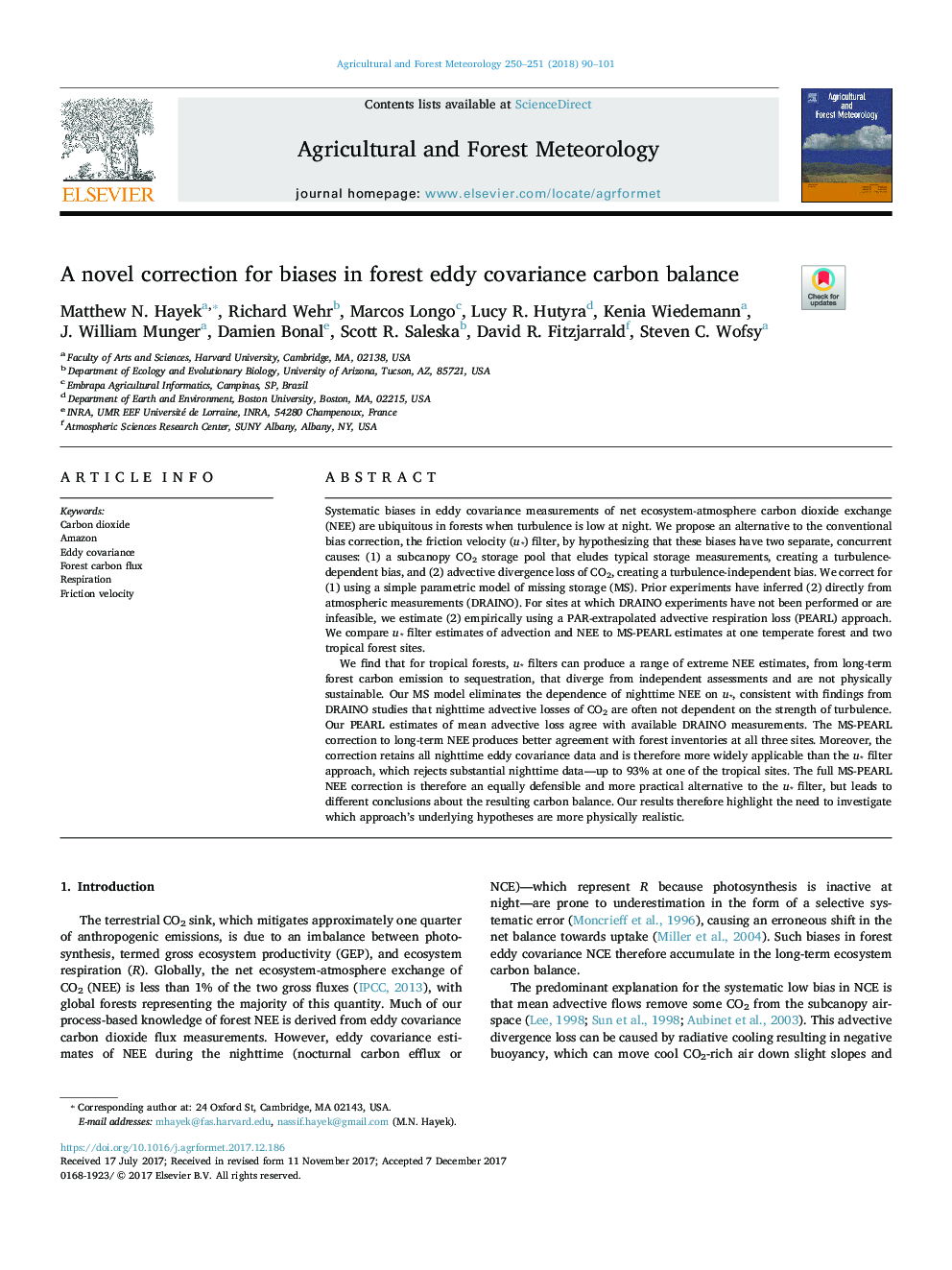| Article ID | Journal | Published Year | Pages | File Type |
|---|---|---|---|---|
| 6536793 | Agricultural and Forest Meteorology | 2018 | 12 Pages |
Abstract
We find that for tropical forests, u* filters can produce a range of extreme NEE estimates, from long-term forest carbon emission to sequestration, that diverge from independent assessments and are not physically sustainable. Our MS model eliminates the dependence of nighttime NEE on u*, consistent with findings from DRAINO studies that nighttime advective losses of CO2 are often not dependent on the strength of turbulence. Our PEARL estimates of mean advective loss agree with available DRAINO measurements. The MS-PEARL correction to long-term NEE produces better agreement with forest inventories at all three sites. Moreover, the correction retains all nighttime eddy covariance data and is therefore more widely applicable than the u* filter approach, which rejects substantial nighttime data-up to 93% at one of the tropical sites. The full MS-PEARL NEE correction is therefore an equally defensible and more practical alternative to the u* filter, but leads to different conclusions about the resulting carbon balance. Our results therefore highlight the need to investigate which approach's underlying hypotheses are more physically realistic.
Related Topics
Physical Sciences and Engineering
Earth and Planetary Sciences
Atmospheric Science
Authors
Matthew N. Hayek, Richard Wehr, Marcos Longo, Lucy R. Hutyra, Kenia Wiedemann, J. William Munger, Damien Bonal, Scott R. Saleska, David R. Fitzjarrald, Steven C. Wofsy,
